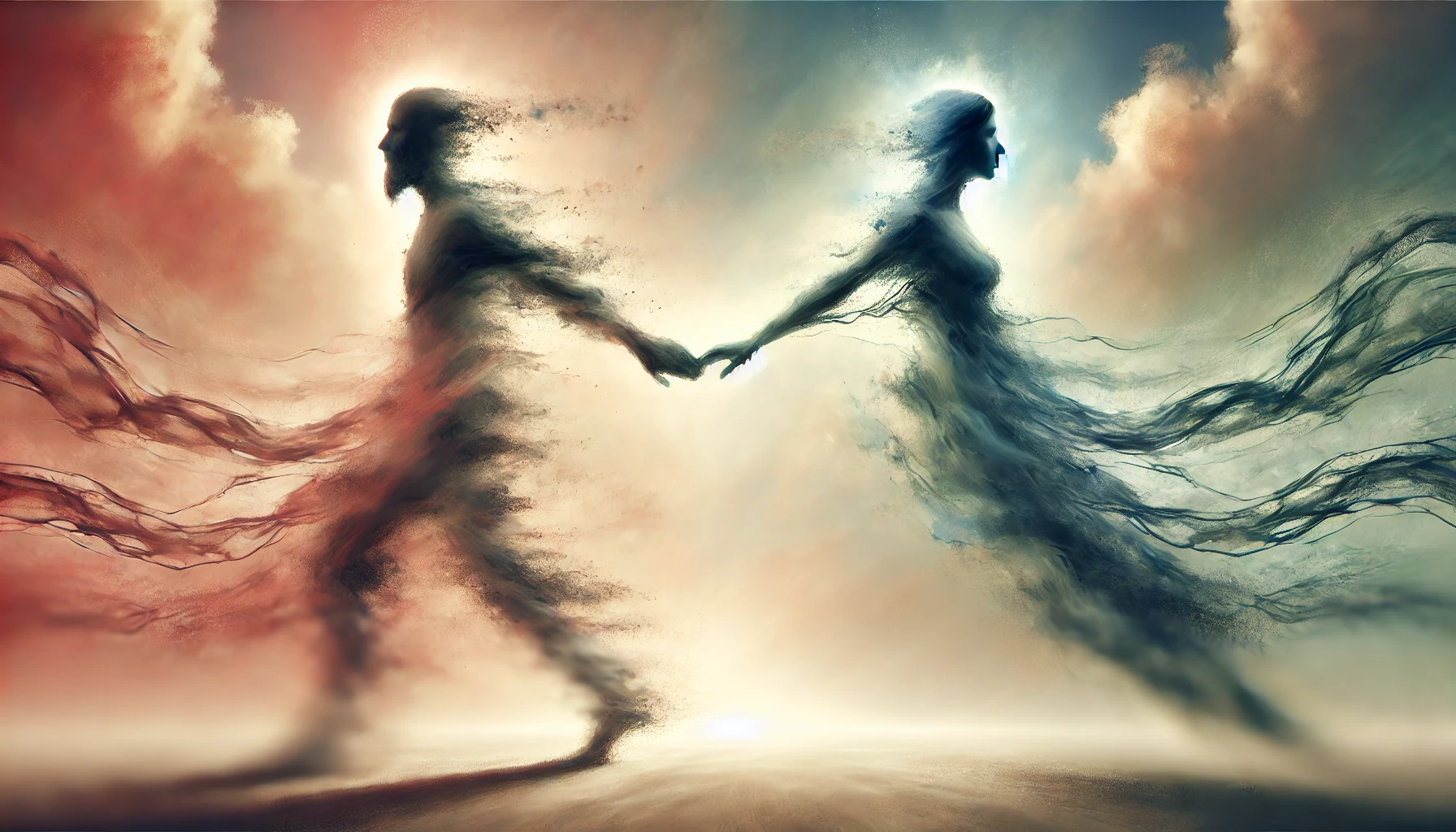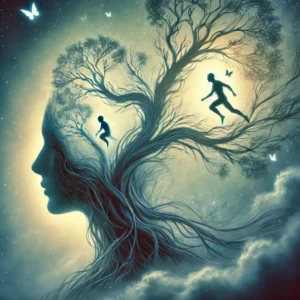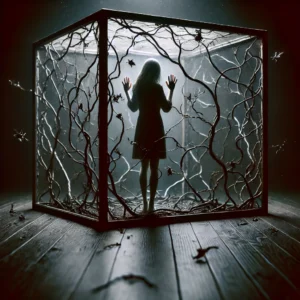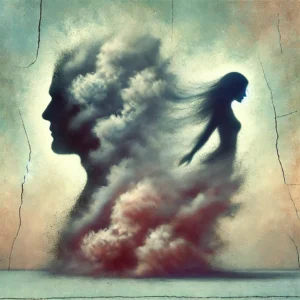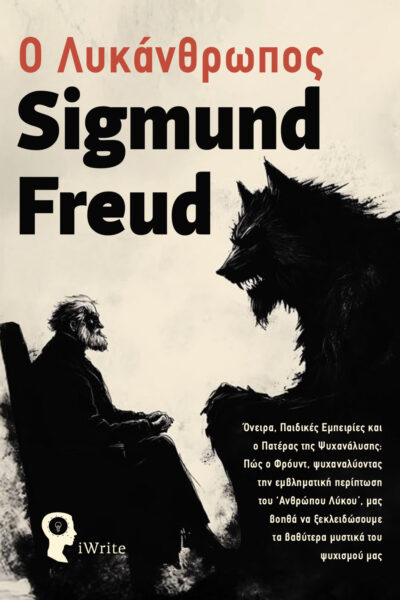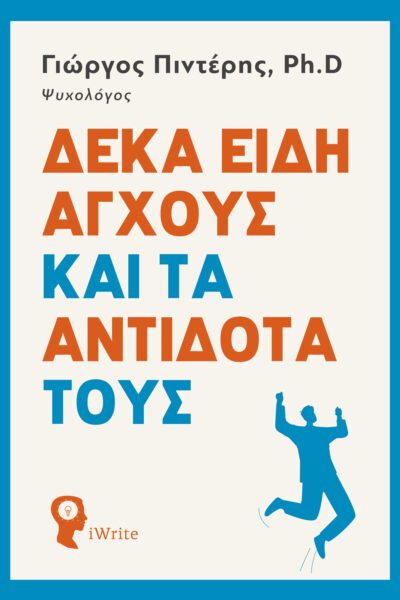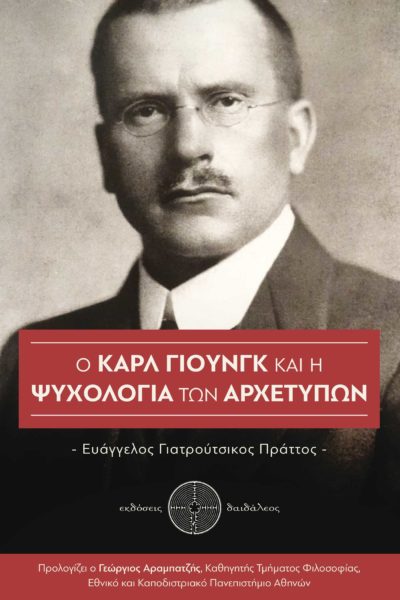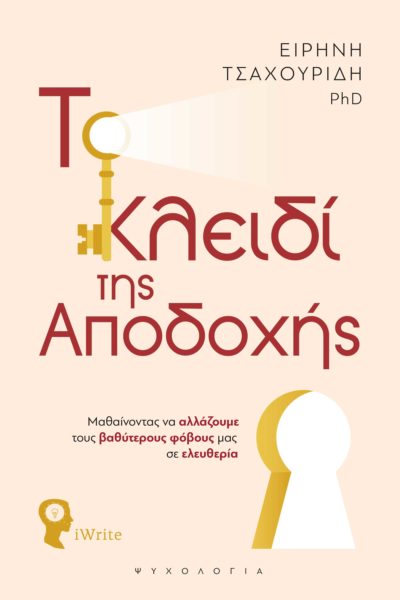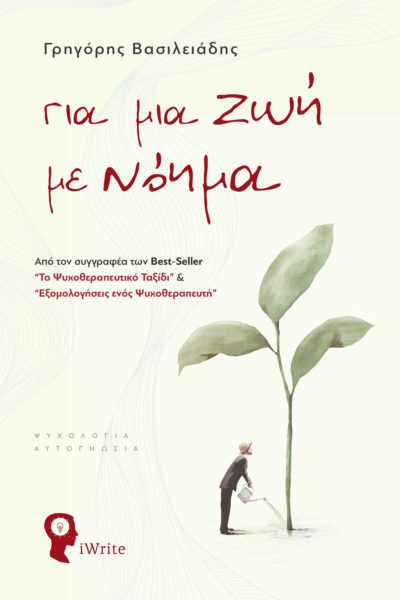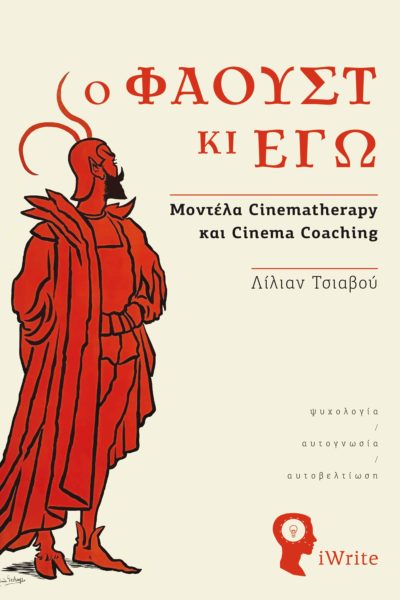Γιατί δεν μπορούμε να φύγουμε από μια τοξική σχέση;
Όταν η αγάπη γίνεται φυλακή
Όλοι έχουμε ακούσει ή ίσως και βιώσει σχέσεις που μοιάζουν περισσότερο με συναισθηματικές φυλακές παρά με ασφαλείς, υγιείς συνδέσεις. Μια τοξική σχέση δεν ξεκινά πάντα με φωνές και συγκρούσεις· αντίθετα, μπορεί να αρχίσει σαν ένα έντονο πάθος, μια δυνατή σύνδεση, μια αίσθηση ότι «βρήκαμε το άλλο μας μισό». Όμως, όσο περνάει ο καιρός, η σχέση μετατρέπεται σε κάτι που προκαλεί άγχος, φόβο, ανασφάλεια και εξάρτηση.
Το πιο οδυνηρό; Παρόλο που γνωρίζουμε ότι κάτι δεν πάει καλά, δεν μπορούμε να φύγουμε. Παγιδευόμαστε σε έναν κύκλο συναισθηματικής έντασης, όπου οι περίοδοι τρυφερότητας διαδέχονται τις στιγμές πόνου, δημιουργώντας μια αλληλουχία που φαίνεται ατελείωτη
Αλλά γιατί συμβαίνει αυτό; Γιατί ενώ βλέπουμε τα σημάδια, εξακολουθούμε να μένουμε; Γιατί κάποιοι άνθρωποι επιστρέφουν ξανά και ξανά σε ό,τι τους πληγώνει; Οι απαντήσεις δεν βρίσκονται στην επιφάνεια. Αντίθετα, είναι κρυμμένες βαθιά μέσα μας, σε μηχανισμούς που λειτουργούν χωρίς να το συνειδητοποιούμε.
Εδώ έρχεται η ψυχανάλυση, ο κλάδος της ψυχολογίας που μελετά το ασυνείδητο, τις κρυφές σκέψεις και τα συναισθήματα που καθορίζουν τη συμπεριφορά μας. Σύμφωνα με αυτή, οι σχέσεις μας δεν είναι απλές συνειδητές επιλογές, αλλά προϊόν εσωτερικών μοτίβων που διαμορφώνονται από τις πρώτες μας εμπειρίες και επαναλαμβάνονται στην ενήλικη ζωή μας, συχνά χωρίς να το αντιλαμβανόμαστε.
Πάμε να εξετάσουμε πώς το ασυνείδητο επηρεάζει τις τοξικές σχέσεις και γιατί, ακόμα και όταν ξέρουμε ότι κάτι μας κάνει κακό, αδυνατούμε να φύγουμε.
Τοξική σχέση και ασυνείδητο: Γιατί επιλέγουμε λάθος ανθρώπους;
Η φράση “η καρδιά έχει τους δικούς της λόγους” δεν είναι απλά ρομαντική, αλλά κρύβει και μια βαθιά ψυχολογική αλήθεια. Οι επιλογές συντρόφων δεν είναι ποτέ τυχαίες. Μπορεί να πιστεύουμε ότι ερωτευόμαστε αυθόρμητα, αλλά η ψυχανάλυση αποκαλύπτει ότι πίσω από κάθε επιλογή συντρόφου κρύβονται επαναλαμβανόμενα μοτίβα του παρελθόντος μας.
Τι σημαίνει αυτό; Σημαίνει ότι πολλές φορές δεν επιλέγουμε έναν σύντροφο επειδή μας κάνει ευτυχισμένους, αλλά επειδή μας είναι οικείος. Το ασυνείδητό μας λειτουργεί σαν ένας “κρυφός πιλότος”, επηρεάζοντας τις σχέσεις μας χωρίς να το συνειδητοποιούμε.
Η παιδική ηλικία ως “πρόγραμμα σχέσεων”
Οι πρώτες εμπειρίες μας με την αγάπη και τη φροντίδα δεν εξαφανίζονται, αλλά αποθηκεύονται στο ασυνείδητό μας και καθορίζουν τις σχέσεις μας στην ενήλικη ζωή. Αν μεγαλώσαμε με αστάθεια, συναισθηματική απόρριψη ή υπερβολικό έλεγχο, είναι πιθανό το μυαλό μας να έχει συνδέσει αυτά τα στοιχεία με την έννοια της “αγάπης”. Έτσι, μπορεί να μας ελκύουν σύντροφοι που μας κάνουν να νιώθουμε το ίδιο – ακόμα κι αν αυτό σημαίνει πόνο.
Τι δείχνει η ψυχανάλυση;
Στις ψυχαναλυτικές μελέτες του, ο Φρόιντ ανέλυσε πώς οι πρώιμες παιδικές εμπειρίες του ασθενούς του καθόρισαν τις μετέπειτα σχέσεις και φόβους του. Το ασυνείδητό του είχε “παγιδευτεί” σε ένα μοτίβο εξάρτησης και φόβου απόρριψης, οδηγώντας τον στην ενήλικη ζωή σε επαναλαμβανόμενες σχέσεις με κυριαρχικά και απόμακρα άτομα.
Παράδειγμα από την καθημερινότητα:
Ένας άνθρωπος που μεγάλωσε με συναισθηματικά απόμακρους γονείς μπορεί να αναζητά ασυνείδητα συντρόφους που δείχνουν το ίδιο μοτίβο απόστασης. Μπορεί να ερωτεύεται ανθρώπους που δεν του δίνουν προσοχή, που τον κάνουν να νιώθει ότι πρέπει να τους “κερδίσει”.
Ο ρόλος της ασυνείδητης ενοχής και του “σωτήρα”
Ένα άλλο στοιχείο που συναντάμε συχνά στις τοξικές σχέσεις είναι το αίσθημα ενοχής. Πολλοί άνθρωποι που βρίσκονται σε κακοποιητικές ή συναισθηματικά εξουθενωτικές σχέσεις νιώθουν ότι είναι δική τους ευθύνη να κάνουν τον άλλον να νιώσει καλύτερα, να τον “σώσουν” ή να τον αλλάξουν.
Γιατί συμβαίνει αυτό;
Στην παιδική ηλικία, κάποια άτομα έχουν μάθει ότι η αγάπη δεν δίνεται άνευ όρων, αλλά κερδίζεται μέσα από θυσίες. Αν ένα παιδί μεγάλωσε σε ένα περιβάλλον όπου έπρεπε να φροντίζει έναν γονέα που ήταν υπερβολικά αυστηρός, απρόβλεπτος ή συναισθηματικά ασταθής, τότε στην ενήλικη ζωή του μπορεί να νιώθει ότι η αγάπη είναι κάτι που απαιτεί συνεχή αγώνα.
Τι δείχνει η ψυχανάλυση;
Η ασυνείδητη ενοχή συχνά εγκλωβίζει τους ανθρώπους σε τοξικές σχέσεις, καθώς αισθάνονται ότι αν φύγουν, θα εγκαταλείψουν κάποιον που τους “χρειάζεται”. Η ψυχανάλυση δείχνει ότι αυτό το φαινόμενο είναι ιδιαίτερα έντονο σε άτομα που μεγάλωσαν σε συναισθηματικά ασταθή περιβάλλοντα.
Παράδειγμα από την καθημερινότητα:
Ένα άτομο που έμαθε από μικρό να “αντέχει” τον θυμό ή τη συναισθηματική ψυχρότητα των γονιών του, μπορεί ως ενήλικας να δικαιολογεί συνεχώς τοξικές συμπεριφορές από τον/τη σύντροφό του, λέγοντας “Δεν είναι κακός άνθρωπος, απλά περνάει δύσκολα”.
Το σύμπλεγμα του ευνουχισμού και ο φόβος της εγκατάλειψης
Ένας από τους πιο ισχυρούς ασυνείδητους φόβους που οδηγούν τους ανθρώπους στο να παραμένουν σε τοξικές σχέσεις είναι ο φόβος της εγκατάλειψης.
Τι λέει η ψυχανάλυση;
Σύμφωνα με τη φροϋδική θεωρία, η εγκατάλειψη βιώνεται συχνά ως τιμωρία. Το παιδί που φοβάται ότι θα χάσει την αγάπη των γονιών του, μεγαλώνει κουβαλώντας αυτόν τον φόβο και ως ενήλικας κάνει τα πάντα για να αποτρέψει τη μοναξιά.
Πώς συνδέεται αυτό με το σύμπλεγμα του ευνουχισμού;
Ο Φρόιντ περιγράφει πώς ο φόβος της απώλειας (είτε της αγάπης, είτε της δύναμης, είτε της αυτονομίας) μπορεί να δημιουργήσει μια βαθιά ασυνείδητη ανασφάλεια. Αυτό κάνει το άτομο να προτιμά να παραμένει σε μια τοξική σχέση, παρά να αντιμετωπίσει την αβεβαιότητα της απομάκρυνσης.
Παράδειγμα από την καθημερινότητα:
Πολλοί άνθρωποι προτιμούν να υπομένουν συναισθηματική ή ψυχολογική κακοποίηση επειδή πιστεύουν ότι η μοναξιά θα είναι χειρότερη. Αυτή η σκέψη δεν είναι πάντα συνειδητή, αλλά πηγάζει από ασυνείδητους φόβους που έχουν ρίζες στα πρώτα χρόνια της ζωής μας.
Η κατανόηση του πώς το ασυνείδητο επηρεάζει τις σχέσεις μας είναι το πρώτο βήμα για να αναγνωρίσουμε γιατί μένουμε παγιδευμένοι σε μια τοξική σχέση. Όμως, δεν είναι μόνο οι εσωτερικές μας ανασφάλειες που μας κρατούν δεμένους· συχνά, υπάρχει και ένας μηχανισμός εξουσίας και ελέγχου, που κάνει τη φυγή ακόμα δυσκολότερη.
Πως εγκλωβιζόμαστε σε μια τοξική σχέση;
Η απάντηση στο ερώτημα «Γιατί μένουμε σε σχέσεις που μας πληγώνουν;» δεν είναι απλή. Όσοι δεν έχουν βρεθεί ποτέ σε μια τέτοια κατάσταση, συχνά απορούν: «Αν κάτι σε κάνει δυστυχισμένο, γιατί δεν φεύγεις;» Όμως, μια τοξική σχέση δεν είναι πάντα εμφανώς καταστροφική από την αρχή, ούτε η απομάκρυνση από αυτήν είναι τόσο απλή όσο φαίνεται. Υπάρχουν ψυχολογικοί, συναισθηματικοί και ασυνείδητοι μηχανισμοί που κάνουν τη φυγή εξαιρετικά δύσκολη.
Το ασυνείδητο αποζητά το γνώριμο, όχι το καλό
Το μυαλό μας δεν αναζητά απαραίτητα αυτό που μας κάνει ευτυχισμένους, αλλά αυτό που μας είναι οικείο. Όταν ένα άτομο έχει μεγαλώσει σε ένα περιβάλλον όπου η αγάπη ήταν ασταθής, ψυχρή ή εξαρτημένη, τότε μια σχέση που αναπαράγει αυτά τα συναισθήματα θα του φαίνεται “φυσική” – ακόμα κι αν είναι τοξική.
Τι δείχνει η ψυχανάλυση;
- Το ασυνείδητο τείνει να επαναλαμβάνει οικεία μοτίβα, ακόμα και αν αυτά είναι βλαβερά.
- Αν ένα παιδί μάθει ότι η αγάπη είναι κάτι δύσκολο, απρόσιτο ή επίπονο, τότε θα αναζητήσει παρόμοιες σχέσεις στην ενήλικη ζωή του.
- Το μυαλό συχνά παγιδεύεται σε έναν φαύλο κύκλο όπου η ένταση, ο πόνος και η περιστασιακή ανταμοιβή δημιουργούν μια ισχυρή ψυχολογική εξάρτηση.
Παράδειγμα από την καθημερινότητα:
Αν κάποιος μεγάλωσε με έναν συναισθηματικά απρόσιτο γονέα, μπορεί να έλκεται από απόμακρους συντρόφους. Αυτό δεν συμβαίνει επειδή τους προτιμά συνειδητά, αλλά επειδή το ασυνείδητο του λέει: «Αυτή είναι η μορφή αγάπης που γνωρίζεις».
Ο φόβος της μοναξιάς είναι ισχυρότερος από τον φόβο του πόνου
Για πολλούς ανθρώπους, η σκέψη της μοναξιάς είναι πιο τρομακτική από τη δυστυχία μιας κακής σχέσης. Η αποχώρηση σημαίνει απώλεια, αβεβαιότητα και ένα συναισθηματικό κενό που δεν ξέρουν πώς να διαχειριστούν.
Τι λέει η ψυχανάλυση;
- Το ασυνείδητο φοβάται το άγνωστο και προτιμά να μένει σε μια κατάσταση που ήδη κατανοεί.
- Η αποχώρηση από μια τοξική σχέση συχνά βιώνεται ως προσωπική αποτυχία ή εγκατάλειψη.
- Το άτομο μπορεί να νιώθει ότι δεν αξίζει κάτι καλύτερο, λόγω ασυνείδητων τραυμάτων ή χαμηλής αυτοεκτίμησης.
Παράδειγμα από την καθημερινότητα:
Κάποιος που βρίσκεται σε μια σχέση γεμάτη χειριστικότητα και ψυχολογική πίεση μπορεί να πει στον εαυτό του: «Αν φύγω, τι θα κάνω μόνος/η μου; Μπορεί να μην είναι τέλεια η σχέση, αλλά τουλάχιστον δεν είμαι μόνος/η.»
Η εξάρτηση δεν είναι μόνο συναισθηματική
Πολλοί άνθρωποι μένουν σε μια τοξική σχέση όχι επειδή θέλουν, αλλά επειδή νιώθουν ότι δεν μπορούν να φύγουν. Αυτό δεν είναι μόνο θέμα συναισθηματικής αδυναμίας, αλλά ενός εθιστικού ψυχολογικού μηχανισμού που κάνει τη σχέση να μοιάζει αναπόφευκτη.
Τι δείχνουν οι έρευνες;
- Οι τοξικές σχέσεις συχνά δημιουργούν χημική εξάρτηση, καθώς οι εναλλαγές αγάπης και πόνου απελευθερώνουν στο σώμα κορτιζόλη και ντοπαμίνη, παρόμοια με έναν εθισμό.
- Το άτομο δεν μένει μόνο λόγω αγάπης, αλλά και λόγω της ίδιας της διαδικασίας εξάρτησης.
- Οι έντονες συναισθηματικές αυξομειώσεις (π.χ. καυγάδες ακολουθούμενοι από τρυφερότητα) ενισχύουν τον δεσμό, αντί να τον αποδυναμώνουν.
Παράδειγμα από την καθημερινότητα:
Σχέσεις που χαρακτηρίζονται από έντονες εντάσεις και μετά περιόδους ακραίας αγάπης μπορεί να δημιουργήσουν ένα μοτίβο όπου ο εγκέφαλος γίνεται εθισμένος στην επιβράβευση. Το άτομο αρχίζει να πιστεύει ότι η σχέση είναι “μοναδική”, γιατί νιώθει έντονα συναισθήματα που δεν μπορεί να βρει αλλού.
Γιατί η φυγή από την τοξική σχέση μοιάζει αδύνατη;
Το μυαλό μας δεν μας αφήνει να απομακρυνθούμε εύκολα από κάτι που έχουμε επενδύσει συναισθηματικά. Ο εγκέφαλος πάντα αναζητά λόγους για να δικαιολογήσει την παραμονή:
- «Δεν είναι πάντα έτσι, υπάρχουν και καλές στιγμές.»
- «Δεν θα βρω ποτέ κάποιον άλλο που να με καταλαβαίνει έτσι.»
- «Αν προσπαθήσω λίγο ακόμα, ίσως αλλάξει.»
Η πραγματικότητα είναι ότι όσο περισσότερο μένουμε, τόσο πιο δύσκολο γίνεται να φύγουμε, καθώς η συναισθηματική και ψυχολογική εξάρτηση γίνεται όλο και πιο έντονη.
Το να εγκλωβίζεται λοιπόν κάποιος σε μια τοξική σχέση δεν είναι απλά θέμα προσωπικής αδυναμίας, αλλά το αποτέλεσμα βαθύτερων ασυνείδητων διεργασιών. Όμως, δεν είναι μόνο το παρελθόν και οι φόβοι μας που μας κρατούν παγιδευμένους. Σε πολλές περιπτώσεις, οι τοξικές σχέσεις βασίζονται και σε παιχνίδια εξουσίας και ελέγχου.
Πώς σπάω τον κύκλο της τοξικής σχέσης;
Το να καταλάβουμε γιατί μένουμε σε μια τοξική σχέση είναι το πρώτο βήμα. Το δεύτερο – και το πιο δύσκολο – είναι να βρούμε τη δύναμη να φύγουμε. Συχνά, η αποχώρηση δεν είναι απλώς θέμα θέλησης, αλλά επαναπρογραμματισμού του ασυνείδητου, ώστε να μη μας οδηγεί ξανά στις ίδιες επιλογές.
Βήματα για να απελευθερωθείς από μια τοξική σχέση:
✔ Αναγνώρισε το μοτίβο → Σκέψου: Μήπως αυτό το μοτίβο επαναλαμβάνεται στη ζωή σου; Μήπως οι σχέσεις σου έχουν κοινά χαρακτηριστικά, ακόμα κι αν οι άνθρωποι είναι διαφορετικοί;
✔ Εντόπισε την πηγή → Η ψυχανάλυση μας δείχνει ότι οι συναισθηματικές μας επιλογές έχουν ρίζες στο παρελθόν μας. Ποιες εμπειρίες έχουν “προγραμματίσει” το μυαλό σου να βλέπει την αγάπη μέσα από τον πόνο, τον έλεγχο ή την εξάρτηση;
✔ Συνειδητοποίησε ότι αξίζεις κάτι καλύτερο → Το ασυνείδητο δεν αλλάζει από μόνο του – χρειάζεται συνειδητή δουλειά. Πρέπει να μάθουμε να αναγνωρίζουμε τι είναι αγάπη και τι είναι εξάρτηση, να αντιληφθούμε ότι η υγιής αγάπη δεν έρχεται με πόνο και φόβο.
✔ Αναζήτησε πραγματική κατανόηση του εαυτού σου → Η βαθιά αλλαγή δεν έρχεται από απλές αποφάσεις, αλλά από συστηματική αυτογνωσία και εσωτερική δουλειά.
Η ψυχανάλυση ως το κλειδί της απελευθέρωσης από την τοξική σχέση
Οι συναισθηματικά επιβλαβείς σχέσεις δεν είναι απλώς θέμα τύχης ή “κακών επιλογών”. Όταν κάποιος ερωτεύεται το λάθος άτομο ξανά και ξανά, αυτό δεν είναι τυχαίο – είναι μια επαναλαμβανόμενη ασυνείδητη διαδικασία.
Η ψυχανάλυση μάς βοηθά να κατανοήσουμε γιατί παραμένουμε σε σχέσεις που μας καταστρέφουν, πώς οι πρώιμες εμπειρίες, αλλά και οι βαθύτεροι ψυχικοί μηχανισμοί, διαμορφώνουν τις ερωτικές μας επιλογές και, το κυριότερο, πώς μπορούμε να απελευθερωθούμε από αυτά τα μοτίβα.
Το βιβλίο “Ο Λυκάνθρωπος” του Sigmund Freud αποτελεί μία από τις πιο αποκαλυπτικές ψυχαναλυτικές μελέτες της ιστορίας. Μέσα από μια πραγματική περίπτωση, αναλύει όχι μόνο την παιδική ηλικία του ασθενούς, αλλά και τη βαθιά σύνδεση μεταξύ επιθυμίας, φόβου, σεξουαλικότητας και τραύματος. Η μελέτη αυτή φωτίζει το πώς οι πρώιμες, αλλά και οι μετέπειτα, εμπειρίες ενός ατόμου μπορούν να καθορίσουν τις σχέσεις του, τις ασυνείδητες φοβίες του και τη συνεχή επανάληψη επιβλαβών μοτίβων στην ενήλικη ζωή.
Μήπως ήρθε η ώρα να σπάσεις τον κύκλο της τοξικής σχέσης;
Αν θέλεις να μάθεις γιατί επιλέγουμε ό,τι μας πληγώνει, πώς το ασυνείδητο διαμορφώνει τις σχέσεις μας και με ποιους τρόπους μπορούμε να ξαναγράψουμε το σενάριο της ερωτικής μας ζωής, αυτό το βιβλίο είναι ένα από τα πιο ισχυρά εργαλεία αυτογνωσίας και ψυχαναλυτικής κατανόησης.
Ανακάλυψέ το σήμερα και δες τις σχέσεις σου μέσα από μια νέα, πιο συνειδητή ματιά. ΒΡΕΣ ΤΟ ΕΔΩ!

